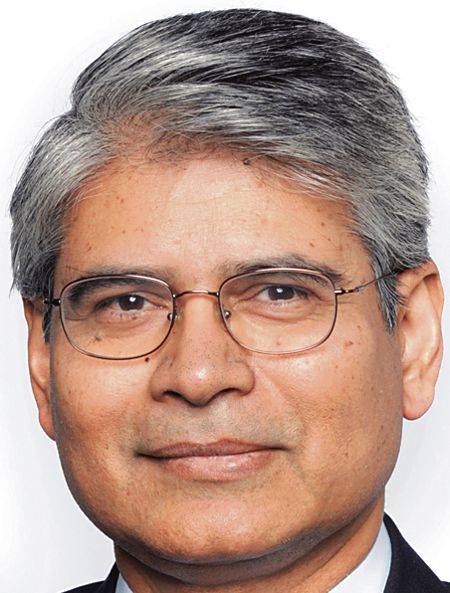Global Pact for the Future mired in ambivalence
THE Summit of the Future, to be held in New York on September 22-23, originated as a response to concerns about the derailment of the implementation of the UN’s Agenda 2030 on Sustainable Development with its 17 Sustainable Development Goals (SDGs). In September 2023, the UN’s SDG Summit attributed ‘numerous crises’ for this derailment.
Since the 75th anniversary of the UN in 2020, India has taken the lead in calling for ‘reformed multilateralism’ to respond to the crisis facing international institutions. Stressing that these challenges needed a ‘human-centric’ response, India participated in the inter-governmental process launched by the UN General Assembly (UNGA) in February 2023 to draft an outcome document titled the ‘Pact for the Future’ (PFTF). The negotiations, co-facilitated by Germany and Namibia (representing the developed Global North and the developing Global South, respectively), call for a “new beginning in multilateralism”. The PFTF attaches a Global Digital Compact and a Declaration on Future Generations as proof of its future-looking orientation.
In policy terms, the emphasis that no single country can substitute for the collective impact of international cooperation, required to respond to the crises facing the world, is well-timed. The PFTF reiterates a “recommitment to international cooperation based on respect for international law”. This highlights the predominance of the treaty framework of the UN Charter over ‘rules’ drawn up by informal plurilateral groupings.
The PFTF begins with sustainable development issues, vindicating the stand taken by India and developing countries of the Global South that sustainable development is the “central objective of multilateralism”. However, while the document devotes considerable space to reiterating existing commitments to the SDGs, its specific recommendations on responding to the crises facing Agenda 2030 are limited.
The PFTF highlights the impact of an SDG Stimulus to generate the necessary finances for sustainable development. It endorses the localisation of SDGs to maximise a whole-of-society ground-up approach to sustainable development. The Fourth International Conference on Financing for Development to be held in Spain in July 2025 is expected to integrate the SDG Stimulus in its outcome, while the Second World Summit for Social Development to be held in Qatar in November 2025 will do likewise for the localisation of SDGs. Outsourcing these initiatives to ongoing inter-governmental processes, which have their own dynamics, may or may not produce time-bound outcomes.
The impression that despite holding a Summit to respond to the crisis, it will still be “business as usual” in the UN, is based on specific timelines in the PFTF. The next milestone to recommend action on Agenda 2030 is the July 2027 annual meeting of the UN’s High-Level Political Forum, which has looked deeply into implementation of SDGs on an annual structured basis since July 2016. This is to be followed by a UNGA Summit in 2027 on the future of Agenda 2030, and a Review Summit of the PFTF in September 2028.
Adding to this ambivalence is the proposal for the UN Secretary-General, through experts appointed by him, to suggest how to “go beyond GDP” in measuring implementation of the SDGs. This potentially makes implementation of Agenda 2030 a self-sustaining open-ended enterprise, substituting statistical analysis for ground-based action by UN member-states.
The fracturing of the UN’s political framework has led to the mushrooming of armed conflicts and confrontational unilateral responses. This has increased pressures on implementing Agenda 2030. An ineffective UN Security Council (UNSC), mandated by the Charter to maintain international peace and security, requires urgent reform to respond to the crisis.
However, the PFTF’s recommendations on UNSC reform are ambivalent. Despite affirming that “the question of the veto is a key element” of UNSC reform, the PFTF recommends continuing open-ended discussions aimed at a ‘consolidated’ outcome “in the future”, without setting any deadline. It ignores why the ongoing Inter-Governmental Negotiation (IGN) process of the UNGA has not yielded any outcomes since 2008, primarily due to the obdurate refusal of the IGN to apply existing UNGA rules of procedure to the negotiations. The PFTF’s disinclination to assert the Summit’s inherent power to resolve such procedural issues on the UNSC reform works to the benefit of the ‘status quo’ major powers like China, France, Russia, the UK and the US, and to the detriment of countries of the Global South seeking equitable and effective participation in the UNSC, despite SDG 16.8’s unanimous and unequivocal commitment to them on this issue.
Two major omissions detract significantly from the impact of the draft PFTF. First, despite the high-profile emphasis in the UN on the ‘human rights-centric’ significance of Agenda 2030, which has the eradication of poverty as its overarching SDG, there is no mention in the PFTF of the UN Human Rights Council (HRC) or its role. This directly questions the relevance of a democratically elected, member-state-driven HRC to constructively align fundamental human rights, including the right to development, with the responses to the crises facing the implementation of Agenda 2030.
The second omission is systemic. Ever since the first major UN Summit of the 21st century in 2000 attempted to make the UN and its Charter relevant and responsive to contemporary challenges, the UN has convened systemic ‘anniversary summits’ of world leaders every five years to review the progress made by multilateralism and harvest outcomes. The 60th anniversary Summit in 2005 resulted in the creation of the UN Peacebuilding Commission and the UN Human Rights Council. The 70th anniversary Summit in 2015 unanimously adopted Agenda 2030. The PFTF omits any reference to the 80th anniversary Summit of the UN due in September 2025, which is expected to launch a Charter Review Conference, as mandated under Article 109 of the Charter. Therefore, the existing Articles 53, 77, and 107 of the 1945 UN Charter will continue to refer to one of the co-facilitators (Germany) of the PFTF as an ‘enemy state’.
The irony of this ambivalence could not have been starker.









